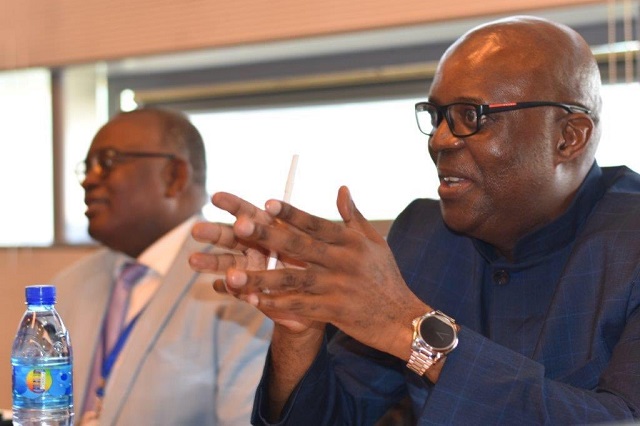
Kampala, Uganda | THE INDEPENDENT | The African Peer Review Mechanism-APRM is considering adopting President Yoweri Museveni’s bottlenecks facing Africa as new areas of assessment while evaluating member states.
In 2015, Museveni presented 11 bottlenecks which according to him are hindering effective socio-economic transformation of the African continent.
Museveni singled out Ideological disorientation, under-developed Infrastructure, lack of industrialization and low-Value Addition, the attack on democracy and governance among others to be Africa’s bottlenecks where states need to be strengthened.
Prof. Eddy Maloka, APRM chief executive officer, says the agency feels that the bottlenecks highlight almost all the cross-cutting issues which are affecting all states in the continent.
Prof. Maloka made the remarks during a side-line interview before the launch of Uganda’s second country assessment report stressing that including bottleneck will deepen the review, give it focus and relevancy to member states.
Established in 2003, APRM is a tool which aspires to create African solutions for African problems by, among things, let states share experiences, reinforcing best practices, and assessing capacity-building needs to foster policies, standards and practices that lead to political stability.
The peer-review process has four thematic areas including democracy and political governance, economic governance and management, corporate governance, and broad-based sustainable socio-economic development. Each member country is assessed and given recommendation which is intended to create solutions in the weak areas.
Although the APRM has attracted a number of states due to its good-looking aspiration, its reliance remains slim given the fact that countries are yet to implement recommendations of the reports released.
Maloka decries the continued side-lining of recommendation by a number of members arguing that if there are not taken up and integrated in government programmes it would be hard for specific countries to forego the highlighted challenges.
The South African Institute of International Affairs (SAIIA) which an independent public policy think-tank highlights that in the last ten years APRM has released a total of 17 solid, comprehensive and honest review in particular countries. However, countries have failed to implement their recommendations.
Silvia Angey Ufoyuru, ex-official at the Uganda’s APRM national governing council, notes that Uganda made steps in implementing the recommendations since the structures of the agency are hosted by the national planning authority.
*****
URN
 The Independent Uganda: You get the Truth we Pay the Price
The Independent Uganda: You get the Truth we Pay the Price


